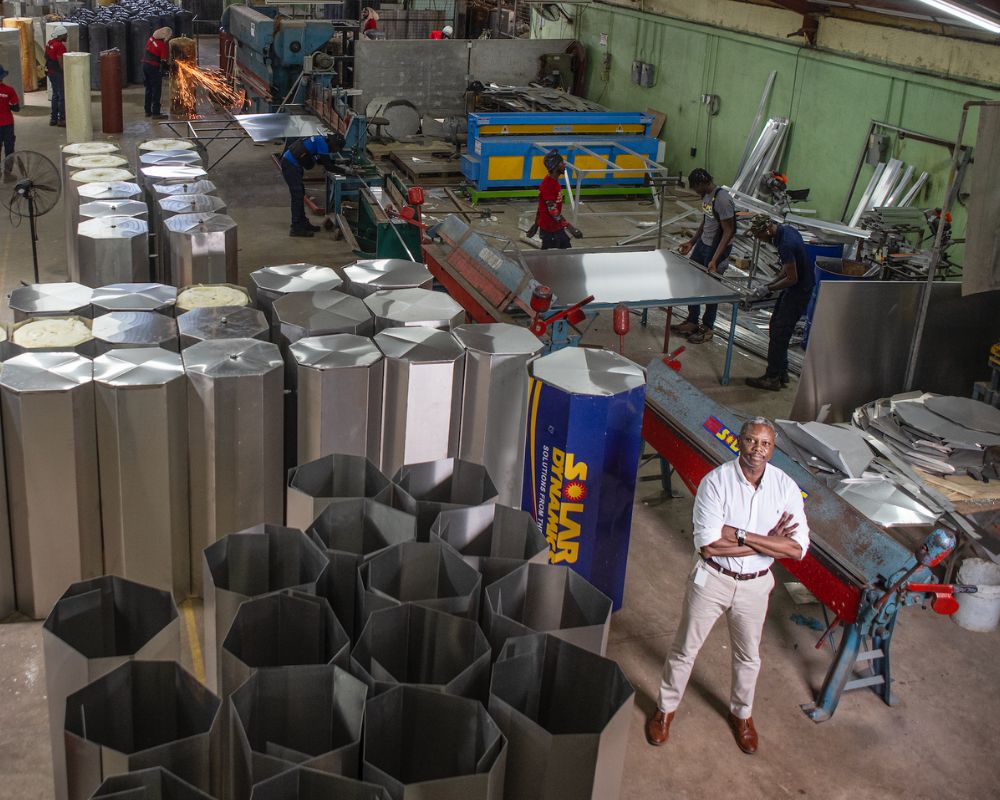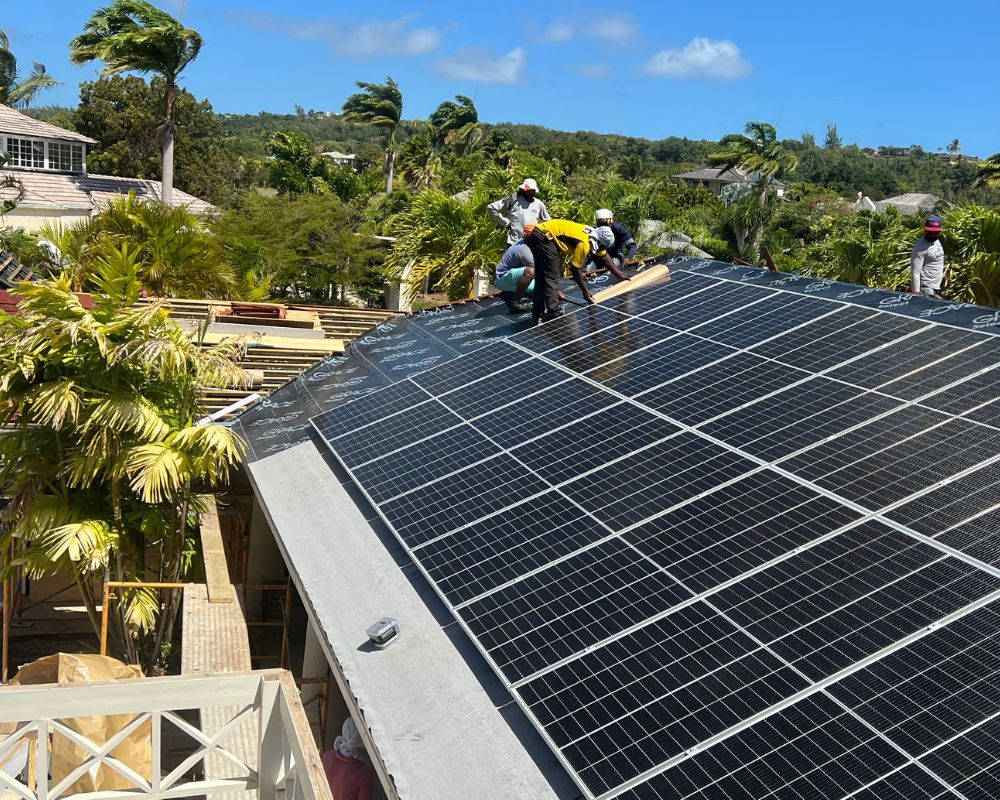
Barbados’ commitment to achieving 100% renewable energy and carbon-neutral status by 2030, is perfectly aligned with the nation’s long-standing position as the leader in proactive energy transition, decades before it was ‘trending’.
As with other Small Island Developing States (SIDS), energy security remains at risk when there is elevated dependence on the highly volatile fossil fuel market. Particularly, Barbados’ bread and butter sectors of tourism and hospitality carry a great demand for energy, yet globally over 50% of travellers are willing to spend more on sustainable travel, and many can be described as ‘activist consumers’ - as they are demanding adoption of a broad range of sustainability initiatives by providers, including accommodations that have a lower environmental impact (Expedia Group).
At a macro level, the Government of Barbados has commenced a project with the Inter-American Development Bank (IADB) and the European Investment Bank on credit guarantees, in the hope of executing a ‘debt-for-climate’ swap in 2024, similar to the prior year’s ‘blue loan’ (of $150 million in international bonds, swapped for cheaper debt, generating $50 million for marine conservation).
This future-focused view is important for all other major sectors, including Transportation, Trade, Healthcare and especially Electricity – as 78% of investors globally are seeking to align their resources with projects that address relevant sustainability issues, even if there are reduced profits in the short term.
Given these developments, the renewable energy agenda is not only a ‘good thing’ but, ‘good business’ for Barbados, and the wider region – as it will help future-proof our economies.
Aspirational Vision
Barbados’ aim is to become the most environmentally advanced green country in Latin America. The Hon. Lisa Cummins (Minister of Energy and Business) reaffirmed this aspirational vision in promoting the “democratisation of access to renewable energy”, whereby the nation’s energy-producing natural resources should benefit the average person (ECPA). This is governed by the ‘Right to Renewable Energy Policy’ (RTRE) which ensures that every householder can benefit financially by investing in the renewable energy sector. Projects like this, which foster energy grid transition fall within the ‘distributed energy resources’ (DERs) category and offer benefits such as reduced electricity bills and the potential for householders to earn revenue from the system installed if their output is greater than usage.
EY’s ‘Growth Opportunities in Distributed Energy Report’ projected that US$850 billion will be invested in DERs by 2030 - some of which can be attracted to SIDS like Barbados. The report reaffirmed that key drivers for DER growth are expanding customer preferences, declining technology costs, and increasing regulatory support. Further, customer-owned DER business models are growing in prominence. This paradigm shift will facilitate a two-way flow of energy and is underpinned, not only by a thrust to decarbonise and decentralise, but also digitalise – altogether creating an enabling clean tech ecosystem.
In 2022, our Barbados office prepared the Barbados Clean Tech Industry Report for the BLOOM Clean Tech Cluster, which found that Barbados “is considered an ‘early-mover’ with favourable conditions for growth and development of a sustainable clean tech ecosystem, given its strategies and policy-oriented efforts.”
Vision is important but, there are several pitfalls that even the best plans can fall victim to. Certainly, two major roadblocks along the DER journey will be capital and capacity. Having said that, with the appropriate advice, both the public and private sectors can develop robust business cases to allow further access to available funding. The right advisors can also act as an interim pool for insights and knowledge transfer, while improvements in curricula take effect.
Bold Actions
Over the centuries of human existence, societies have transitioned the way we generate and use energy, always out of necessity but, never as deliberately as we are being made to do now. Fossil-fuels and their derivatives are facing impending sunset horizons as climate change is an existential threat, and requires a transition to sustainable energy, which is now generally accepted and underway. Yet, certain sectors will still require petrochemicals, until they can be effectively replaced through advances in technology, which requires additional R&D resources.
Our regional societies and economies are particularly at risk – with real-time impacts being experienced. As such, this transition requires bold actions by the major carbon emitters, such as adoption of electric vehicles (EVs) in public and private transport, electric grid scale flexibility, large scale energy storage, super grids, several sources of renewable energy production, and grids that can deal with weather dependent generation. While our footprint is negligible, it is imperative that Barbados and other SIDS set the tone in these initiatives and act boldly as well.
Again, due consideration must be given to technical, operational, and cultural challenges inherent in making these shifts. Fortunately, there are several case studies available from territories that have navigated the teething issues, which can be adapted to inform domestic application of best practices.
Collaborative Approach
Without a collaborative approach between our utility providers, public transport providers, the public sector, civil society and private capital, silos will manifest (some exist already) – wasting time and other precious resources. Each stakeholder has a vital role to play, and significant capital needs to be mobilised – in the shortest possible time.
All stakeholders must become advocates for cross-national integration of policies and projects, given the need for scale but, also the high-potential opportunities - that can only be fully leveraged through genuine and concerted collaboration among nations and peoples.
The region has massive dormant potential waiting to be awakened, through project, programme, and portfolio management, optimization of technology adoption, and building long-term strategic partnerships – in the sustainability sphere. EY’s global and regional network has effectively supported governments, businesses, and other stakeholders in these areas – and we can attest that when implemented effectively, the value is exponential.
Making a better working, more sustainable Barbados
Prime Minister Mia Mottley has been a champion for Barbados achieving net-zero by 2030. Everyone should join this noble clarion call. Billions of dollars of investment is required, but the savings in energy costs and ForEx will be equally as lucrative for this small but scalable economy.
The nation is moving to drastically reduce its greenhouse gas emissions and pivoting its energy infrastructure away from fossil fuels, to operate on lowcarbon electricity – a scale of transition analogous to what occurred in the industrial revolution.
The call to action is clear. The goal is challenging but its achievement will be ‘easy’, once all stakeholders adopt a unifying aspirational vision, take bold actions, and collaborate, collaborate, collaborate. Ernst & Young Caribbean remains ready to help in building a better working, more sustainable Barbados, region, and world.















